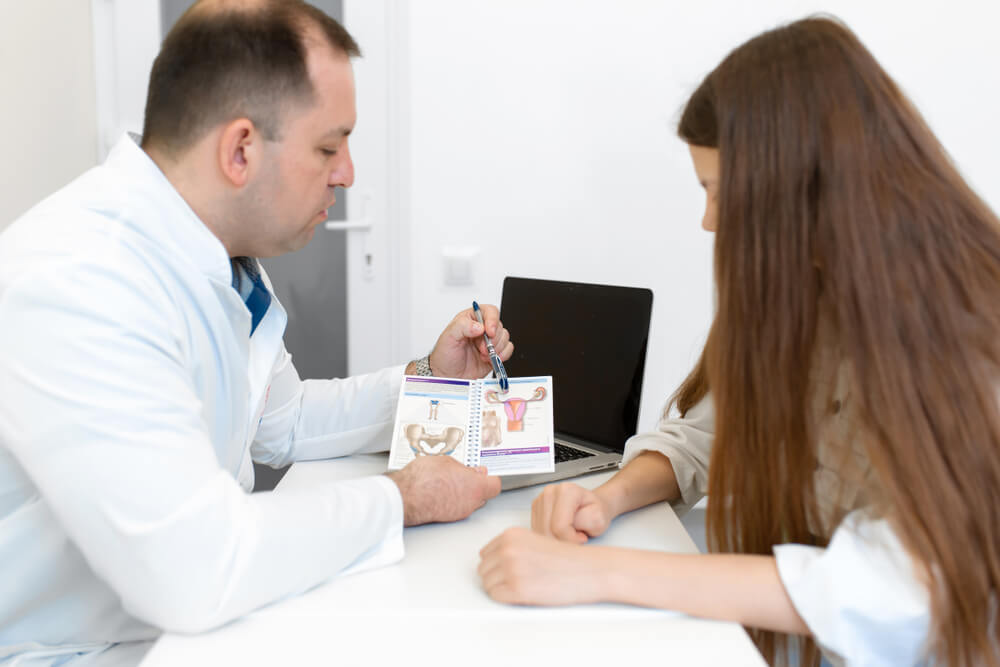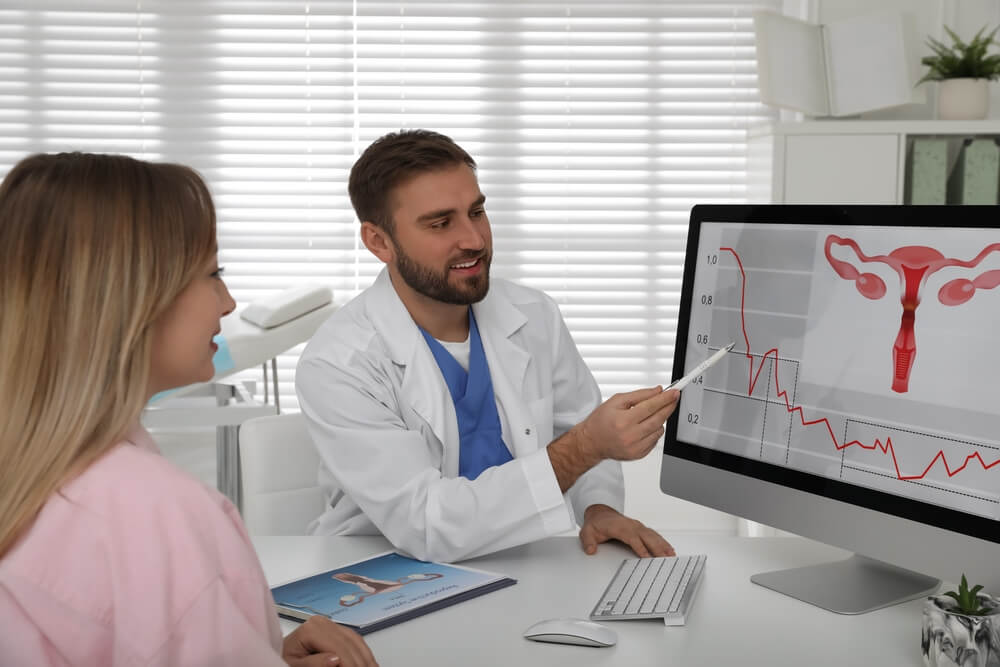Our bodies develop as we age, and as a result, what we need changes as well. This applies to our health! For young women, there comes a time when we need to see an obstetrician/ gynecologist otherwise known as an OB/GYN. This medical expert is trained and certified in the field of women’s health.
Doctors recommend that females make their women’s first OB-GYN between the ages of 13 and 15 or at the start of their first period. If you’re wondering about preparing for a gynecologist visit, keep reading.
It’s natural to feel apprehensive and wonder what to expect for your first time visit. Many women feel nervous before their first appointment, especially if they are young. It helps to relax and know what to expect from your first gynecologist session. That’s why we at Women’s Care of Bradenton are here to help all ladies prepare for their first gynecology appointment.
Preparing for Gynecologist Visit
Before your first session, here are nine things you should know about what to expect for your first time appointment with us. If you arm yourself with this knowledge, you won’t have to worry about any gynecologist appointment surprises.
- Recognize why you’re going.

It’s an excellent idea to know why you’re going to a gynecologist appointment in the first place. Here are some common reasons why women make their first gynecology appointment.
When we are still in our teens, our bodies begin to change. We may feel different or even start to act differently. Many times, young women are curious about their developing bodies. During your women’s first OB-GYN visit, you’ll be able to inquire about your concerns.
- What are the alternatives to contraception?
- What about sexually transmitted infection testing?
- I’m having hormonal imbalances and menstrual problems. What should I do?
These are just a few questions women have. You should make a list of questions before your first gynecological appointment. You want to make note of things that come to mind during your menstrual cycle. You will feel more prepared, and a list might also assist you in remembering what you need to accomplish.
You will be able to leave the doctor’s office with peace of mind if you discuss all of your worries at your initial session. Coming to your gynecologist appointment prepared might also assist you in being a more effective advocate for yourself.
Let’s say you forgot. Well, not to worry because you’ll typically get 20 to 30 minutes with your gynecologist for your initial consultation. Rather than allowing anxieties about the appointment distract you, know that your doctor will ask you all the important questions.
- If you’re under the age of 21
Before your women’s first OB-GYN appointment, a medical practitioner will take your height, weight, and blood pressure.
However, if you’re under the age of 21, your doctor is unlikely to do a pelvic check on your first appointment. Were you concerned about it? Don’t freak out! You’re likely in the clear for now. However, some younger women may still need a pelvic exam anyway. You may need one if you are sexually active and want to be tested for sexually transmitted infections (STIs.)
Also, If you’re under 21, your OB/GYN would most likely prescribe a pelvic exam and/or Pap test if you have any health concerns (abnormal bleeding, painful periods.)
During a pap test, you can expect the following:
Your doctor will swab the lower region of your uterus, known as the cervix, during a Pap test. They will be able to get a sample of cervical cells as a consequence. The sample is then sent to be examined for any anomalies.
Depending on your circumstance, your doctor will screen for cervical cancer, STDs, and other things. There is a chance that the test results are positive. But don’t panic; these tests can find issues early, and your doctor will provide you with the next steps.
In addition to a pelvic exam, your doctor may also do a breast exam at your initial gynecological appointment. During this test, your doctor will feel your breast tissue and look for any lumps or abnormalities. You should also ask about how to perform routine breast exams at home. Breast cancer is serious, and you want to be ahead of these things.
Tell your doctor if you don’t want a breast exam or pelvic exam during your initial gynecological appointment.
- What Does a Pelvic Exam Entail?
If you want a pelvic exam at your first visit to the gynecologist, here’s what to expect:
- They will look at your vulva (labia, clitoris, and entrance of your vagina). A speculum is used to check the vaginal and cervical regions (a device inserted into your vagina to get a better view)
- Your doctor will perform a bimanual examination of your reproductive organs.
- Your OB/GYN can perform the pelvic exam to assess the health of your uterus and ovaries.
Let your doctor know ahead of time if you have any concerns regarding your pelvic exam. They can assist you with the procedure.
- Contraception
Many women want to ask their doctor about prescribing birth control at their initial appointment. The pill can help improve acne, ease cramps, regulate your menstrual cycle, and many more things.
Your OB/GYN will ask you questions based on your lifestyle and medical history. They could also inquire if you have any preferences for different types of birth control or what current symptoms are bothering you. A doctor may recommend an IUD if you have difficulties remembering to take your medications or want an alternative form of birth control.
- Don’t Worry About Your Appearance
Don’t let pubic hair, labia length, or any other aspect of your body bother you. You are truly perfect just the way you are, and your doctor is only there for your well-being. While you may feel self-conscious, remember that physicians do this all the time, and the appointment with your gynecologist is strictly medical.
If you feel uncomfortable still, simply showering and rinsing off your labia with water before your visit can help you feel more confident.
- Prepare Yourself for the Reality Check
Expect your doctor to ask you intimate questions about your period and sex life.
Before you go to your first gynecology appointment, make sure you know the start day of your last period. If it applies to you, you’ll want to bring up the following:
- Cramps
- Heavy Bleeding
- Irregular Bleeding
- Spotting
- Mood Swings
- Irregularity
- Pain
Your obstetrics and gynecology doctor will also question you about your sexual activity. If you don’t answer their questions honestly, they won’t have the information they need to help you keep your health in check. Your doctor will not judge you or share information about you with a parent, friend, or spouse. They are bound by the law.
- Family’s Medical Background

Knowing your family’s medical history may also assist you in preparing for your first gynecological visit.
If you can, give your mother a call and learn about her medical history. Her health can provide insight into yours. You’ll also want to know whether your family has a history of blood clots, breast, or cervical cancer. Your doctor may suggest estrogen-based contraception or test accordingly if this is the case.
Your doctor will also question your personal medical history, including prior procedures and current medicines.
Write down everything you’ll need if you’re nervous about your first gynecologist appointment.
- You Have Control
Even before you come for your first appointment, keep in mind that you are in command. You only have to do what you are comfortable with.
If this is your first time, tell your OB/GYN. You can also request to have a close friend or family member in the room with you if you require support. If you’re anxious about a procedure, get a walkthrough from the doctor.
Make an Appointment for Your Visit
Schedule an appointment with the healthcare professionals at Women’s Care of Bradenton. We put compassion at the forefront of our practice and understand a woman’s first visit is life-changing.
For those returning ladies, a pelvic exam is recommended every three years. We can help you stay on track. After that, an annual checkup is all you need. After you depart, you can expect a call from the doctor’s office with any test results.
Are you ready for your first gynecological appointment? You may now confidently enter the meeting knowing that you are prepared for everything! Call us today.


